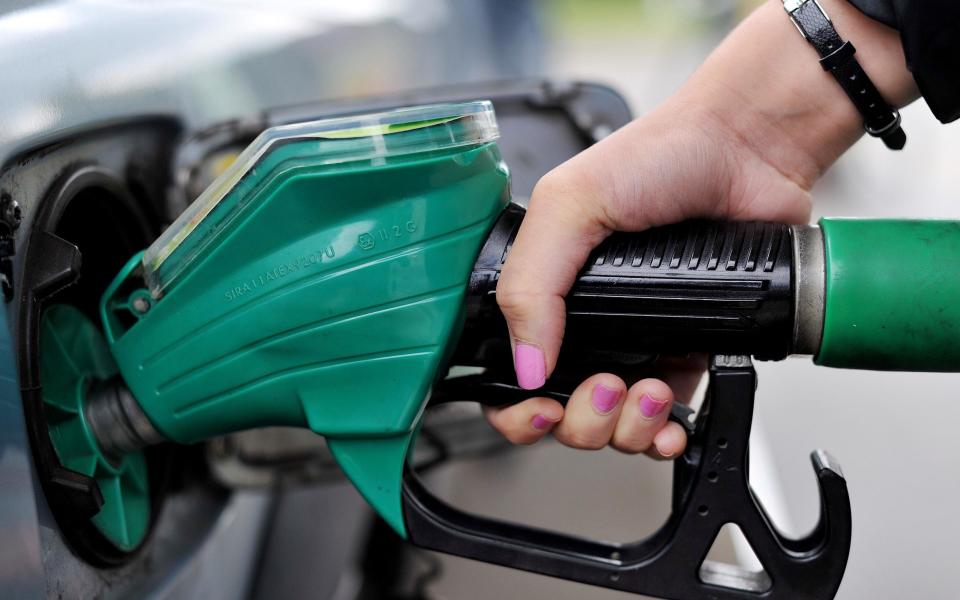Petrol should be 25p a litre cheaper say MPs as campaigners hit out at retailers

Drivers should be paying 25p less per litre for fuel as retailers fail to pass on a 20pc drop in wholesale petrol prices, MPs have warned.
The profit margin on unleaded petrol prices is the largest since at least 2013 as retailers cash in on plunging wholesale prices.
From June 1 to August 9, the wholesale price of unleaded petrol fell by a fifth to 123.81p a litre, according to the RAC, a breakdown cover provider. Yet over this period the price paid at the pump by motorists has increased.
Instead of falling, the average retail price of petrol (excluding VAT) rose by 1.6pc to 147.40p. This means retailers have a margin of 23.59p – the largest on record in the RAC’s dataset, which goes back nearly a decade. The cost at the pump including tax was 175.77p.
Craig Mackinlay, Conservative MP and chair of the Fair Fuel all-party parliamentary group, said: “We should be seeing reductions of at least 25p per litre across all pump fuels – the public have reached their own conclusions that excessive profiteering is at play somewhere or at multiple points in the supply chain.”
Simon Williams, of RAC, blamed Britain’s largest petrol retailers for keeping prices high for consumers and urged drivers to shop around to find smaller independent retailers that are passing on the wholesale price falls.
Mr Williams said: “While there’s no doubt petrol should come down to around 160p per litre, we fear this is wishful thinking due to the fact that the big four supermarkets are currently so resistant to lowering their prices.”
Because supermarkets buy petrol and diesel more frequently, they can adjust their retail prices more quickly in response to wholesale price changes, Mr Williams said. “They haven’t lowered their prices as much as they should have, which means the average UK price has not come down in line with the significant drop in wholesale fuel.”
Mr Mackinlay called for the Competition and Markets Authority, a watchdog, to do more to find out why retailers are not passing on the savings to consumers more quickly.
In July, the CMA launched an investigative study into the relationship between wholesale and retail prices, which is due to be published in the autumn.
Retail prices have begun to come down in recent weeks. Between July 1 and August 9 retail prices excluding VAT dipped by 7.6pc – but this is far lower than the 20pc drop recorded since the wholesale price peak.
Howard Cox, of FairFuelUK, a campaign group, warned that the pricing problems were more widespread. “While there are some unscrupulous retailers, the opportunistic profiteering is rife further up the fuel supply chain.”
Petrol prices soared to record highs this year as the price of crude oil rocketed following the war in Ukraine. The war also inflated refinery costs, amplifying the supply shortage after refining capacity was mothballed during the pandemic. A drop in the value of the pound has further inflated prices as it pushed up the cost of imports.
Andrew Opie, of the British Retail Consortium, a trade association that represents supermarkets, said: “Retailers understand the cost pressures facing motorists and will do everything they can to offer the best value-for-money across their forecourts, passing on cost reductions as they feed through the supply chain.”

 Yahoo Finance
Yahoo Finance